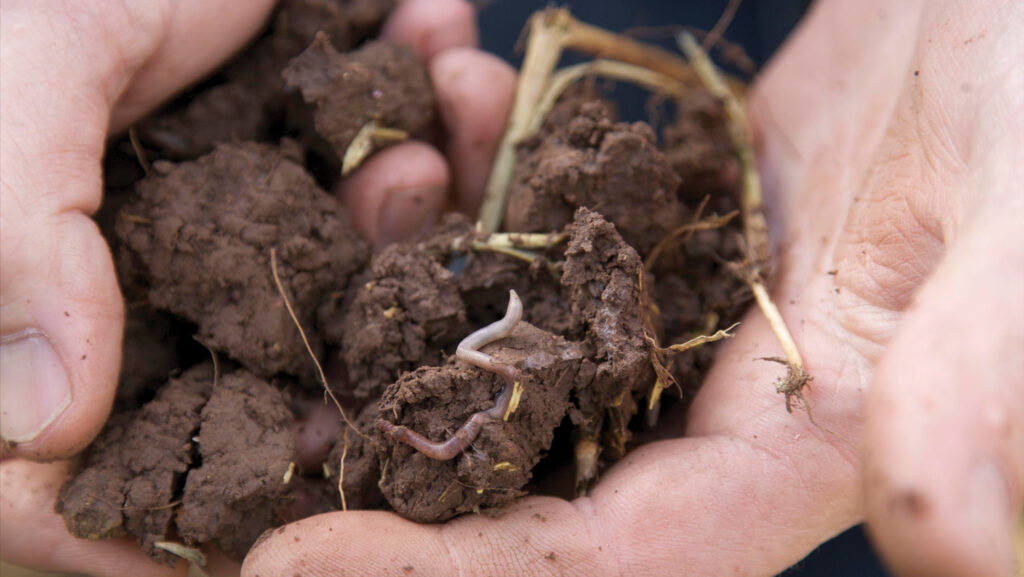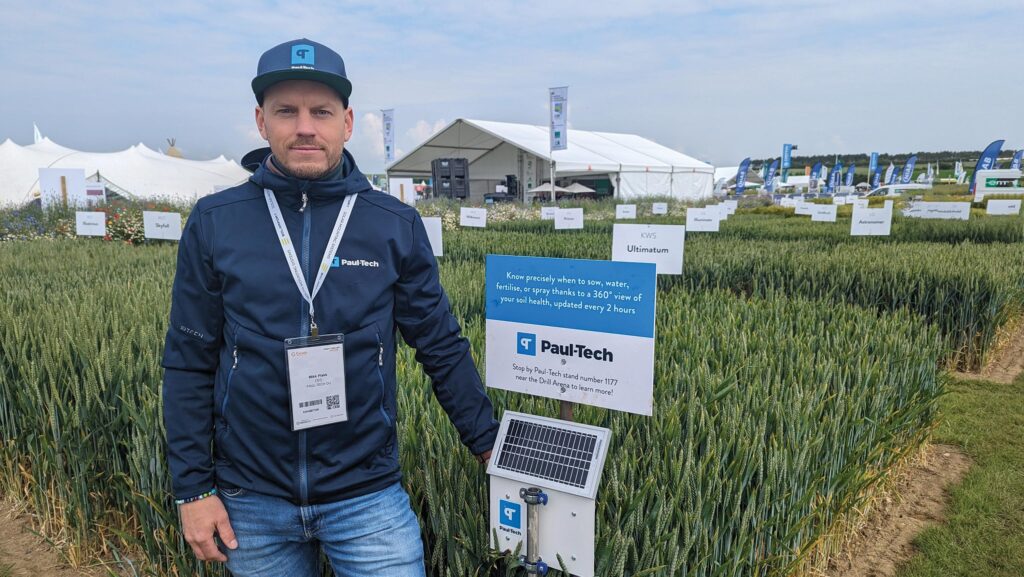Cereals 2024: Soil sensors target fast testing and nutrient use
 © Tim Scrivener
© Tim Scrivener Two high-tech soil sensors were on show at this year’s Cereals event, putting speed, nutrient use efficiency and microbial populations at the core of tests.
Paul-Tech soil station
A soil sensor which accurately measures nutrient movement through the soil is helping farmers make better-informed fertiliser timings to optimise nutrient use efficiency.
Created by Estonian company Paul-Tech, the soil station was launched in the UK earlier this year and provides users with real-time soil health and actionable insights.
The station comprises two state-of-the-art sensors, powered by solar energy, which measure electrical parameters at two depths – 8cm and 20-25cm – and calculates:
- Nutrient level (N, Ca, K, Mg, S as total sum)
- Nutrient availability
- Soil water availability
- Soil moisture
- Temperature
- Humidity.
Paul-Tech chief executive Mikk Plakk explains that the data is presented in a web or mobile app with automated suggestions and tips.

Mikk Plakk at Cereals with the Paul-Tech sensor unit © Paul-Tech
He says: “With the soil station data, growers can understand what conditions maximise nutrient use efficiency and which cause nutrient leaching, and can adjust their fertiliser applications in line with that.
“This system helps decision-making and can deliver significant savings to farmers.”
The soil station is available as a service model, costing £300 a month for two stations. Cheaper deals are available depending on the number of stations and length of use.
Farmer’s view
Staffordshire arable farmer Clive Bailye is using the Paul-Tech soil sensor to enhance fertiliser application timings.
He comments: “We’re all aware of variable rate fertiliser and we get information on the quantities we need to apply, but not the timings.
“The soil station will say ‘now is the optimum time to apply fertiliser’ or, better still, it tells you if the fertiliser you applied two weeks ago is still in the soil so you don’t need to apply more.
“That could save a significant amount of money.”
PES Technologies soil tester
The PES Technologies sensor is a comprehensive five-minute soil health test which reports on a variety of biological, chemical and physical soil health indicators, including microbial biomass.
The hand-held, battery powered testing device, about the size of a lunchbox, is controlled by a smartphone app which analyses key indicators to enable monitoring of soil health.
Soil samples are analysed directly in-field and the entire process, from start to finish, takes only five minutes per sample.
The PES Technologies tool provides data on more than 10 indicators, including:
- Soil organic matter
- Microbial biomass
- Respiration
- Water holding capacity
- Nutrient profile and pH.
The tool works by capturing the “smell profile” of the soil.
Samples are gently heated to release volatile compounds which are detected by the sensor, building up an unique electrical fingerprint fingerprint of the soil and its components.
Each test records the GPS co-ordinates of where and when it was taken, so users can track soil health changes at a fixed spot over time.
The soil tester is available as a one-off purchase for £3,000 from the Norfolk-based company, with a follow-up fee of £25 for each test.
It is primarily aimed at large-scale farmers and agronomists, but could be a useful collaborative purchase for a group of farmers.
Benefits of PES Technologies soil tester
- Data-driven in-field decisions
- Fast five-minute testing
- No sample prep or postage to a lab
- Every sample is GPS tagged
- One test includes many soil health indicators
- Suitable for monitoring, reporting and verification schemes, such as the Sustainable Farming Incentive

